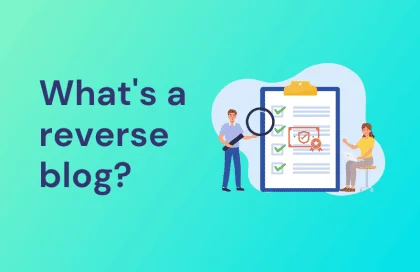Money management is a skill that many people have yet to master. It’s not an easy feat, as you must keep track of your finances and ensure everything is clear when spending or saving money. Unfortunately, even with the best intentions, some people still make silly, costly money-managing mistakes.
Here’s a list of some common money-managing mistakes people make to help you avoid such errors or help others get on the right path financially.
Most common money management mistakes people make
We are all wading through money management and discovering new daily tricks. With the resources such as dollarfinancials, you can learn how to better manage your money.
1) Not paying credit card in full every month
It seems like a no-brainer: try not to carry any balance on your credit card statement each month so as not to avoid paying hefty interest fees. However, this advice is often forgotten; sometimes, bills come up unexpectedly when we least expect them and can cause us to pause in paying off our credit card debt in full. This eventually leads us into more trouble than initially intended, thus resulting in an excessive repayment amount for interest rates.
Such common financial mistakes should always be avoided by budgeting effectively beforehand for unexpected expenses that may arise within the months.
2) Not doing vehicle inspection when buying a used car
Buying a used vehicle has benefits and drawbacks if a proper inspection is done after committing yourself financially to the transaction. This is because these kinds of cars hide certain issues underneath their hoods (like engine problems), which can prove too costly afterward if left undetected.
An inspection from your best mechanic will save time, money, and energy. Let them thoroughly check existing mechanical flaws before taking ownership of over-used vehicles.
3) Not contributing to your 401k
A critical step towards responsible financial planning involves regularly contributing towards your 401k savings plan. This should start when you get your first job to ensure you have enough money for your retirement.
Employers typically match contributions to a certain percentage of each person’s salary. Therefore, you must take advantage to increase your contribution. Besides, it helps lower taxes levied against those funds compared to other investment accounts. Contributing to personal retirement is vital to maintaining healthy long-term income streams.
4) Marrying someone without money management knowledge
Marriage is beautiful but requires two partners to understand what it takes to provide for the household financially. Having proper money management knowledge on either side can lead a couple into deep financial trouble, especially when certain expenses come up unexpectedly.
Therefore, as a couple, you must learn to budget together and understand each other’s spending habits. This will go a long way in ensuring that you both feel taken care of.
5) Buying a mobile home as your first investment
Mobile homes are often seen as a good investment option due to their low price point and relatively easy maintenance costs. However, they can quickly become hidden money pits if not adequately researched. Besides, mobile homes do not increase in value. So let it not be your first purchase.
6) Holding a huge and expensive wedding
Weddings are special occasions, but you don’t need to break the bank to get married happily. It’s important to remember that big doesn’t always mean better.
Expensive weddings tend to go way over budget, leaving couples in sticky situations after the honeymoon ends. So try to plan realistically for the costs involved with your spouse before committing anything. There are plenty of ways to save money when transforming your dream wedding into a reality without sacrificing dreams.
7) Impulse shopping
Sometimes impulse shopping is hard to resist, especially with alluring sales or bright colors of the latest fashion trends. However, if you’re trying to keep finances healthy and avoid growing debt, think through a purchase twice before taking out your wallet.
Impulse buys can quickly add up, leading to feeling guilty for not being able to purchase things needed afterward. To ensure your impulse craving is satisfied, plan for when you can afford to splurge on items rather than going into debt.
8) Financing your girlfriend / boyfriend’s education
It’s easy to get caught up in emotions and promise to finance everything your significant other needs, especially if they’re still studying while you make a steady income.
However, this could be one of the biggest money mistakes people make as it could lead to financial hardship if not thought through carefully. Make sure to weigh the pros and cons before committing financially.
It might be better to help loved ones look into scholarships or student loans that would fit their needs better than anything else. This is because we’ve seen from several testaments online how many regrets doing this after the relationship turns sour.
9) Helping your girlfriend / boyfriend pay their debts
It’s natural to want to help your significant other when faced with certain debts. However, it’s important to remember that you should never take out your own money to pay for someone else’s obligations; it will only lead to future financial issues for you.
Try discussing the issue openly with your partner and working out a feasible solution (like setting up a payment plan) together rather than taking responsibility for yourself. This way, there won’t be any resentment or guilt surrounding the situation.
10) Not getting medical insurance
One of the most common money-managing mistakes people make is not getting medical insurance until it’s too late. Medical payments tend to be expensive, so having an insurance plan helps reduce the costs you incur for hospital visits or treatments.
Before committing yourself financially to anything else, look into different medical plans available in your area and get one that suits your needs best.
11) Late renewing vehicle insurance
It’s essential to keep track of renewal dates of vehicle insurance policies as they differ from state law. Failing to renew your licenses on time often lead to heftier fines when pulled over by the police.
Not to mention those tickets could raise premium prices exponentially if the past due amount is paid off after a period of time.
12) Failing to check your email daily
It’s always important to keep track of emails received daily as they might contain information regarding payment due dates or other financial-related issues that could easily slip your mind if not checked regularly.
For instance, we’ve heard about a company owner who missed buying the stock at a lower price for their IPO.
So, set aside a few minutes each day to check inboxes to ensure nothing slips through the cracks. Plus, unsubscribe from unwanted newsletters as it will help reduce the amount of junk mail sent to your inbox, thus, freeing up time for more important messages.
Final thoughts
Money management mistakes are common, even by those trying their hardest to stay on top of their finances. It’s key to remember that these errors can be avoided with proper planning and budgeting in advance.
With a little effort and dedication, anyone can learn how to avoid costly money-managing mistakes. It just takes self-discipline and commitment to become a financially savvy individual.






